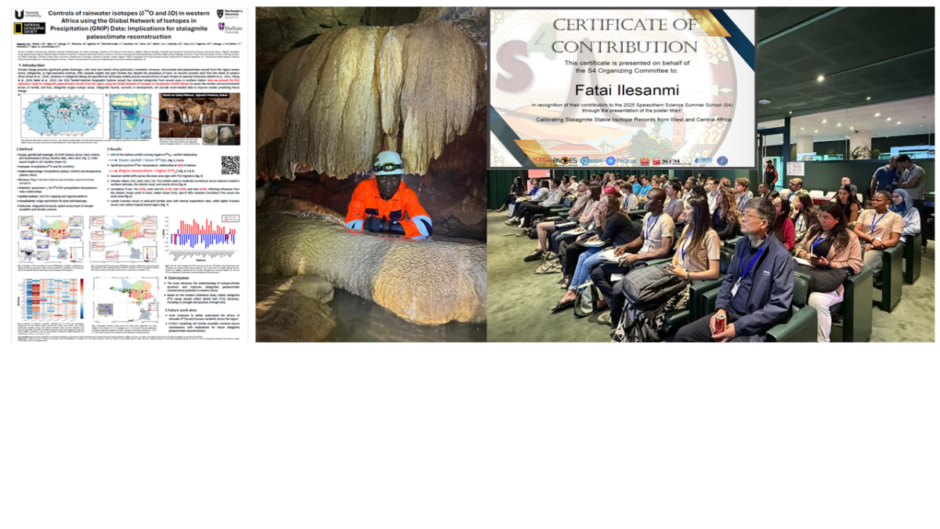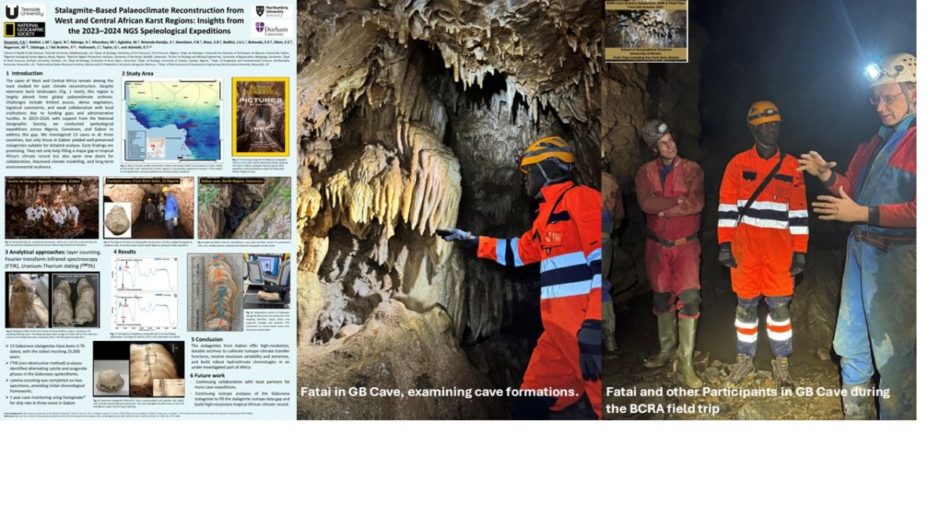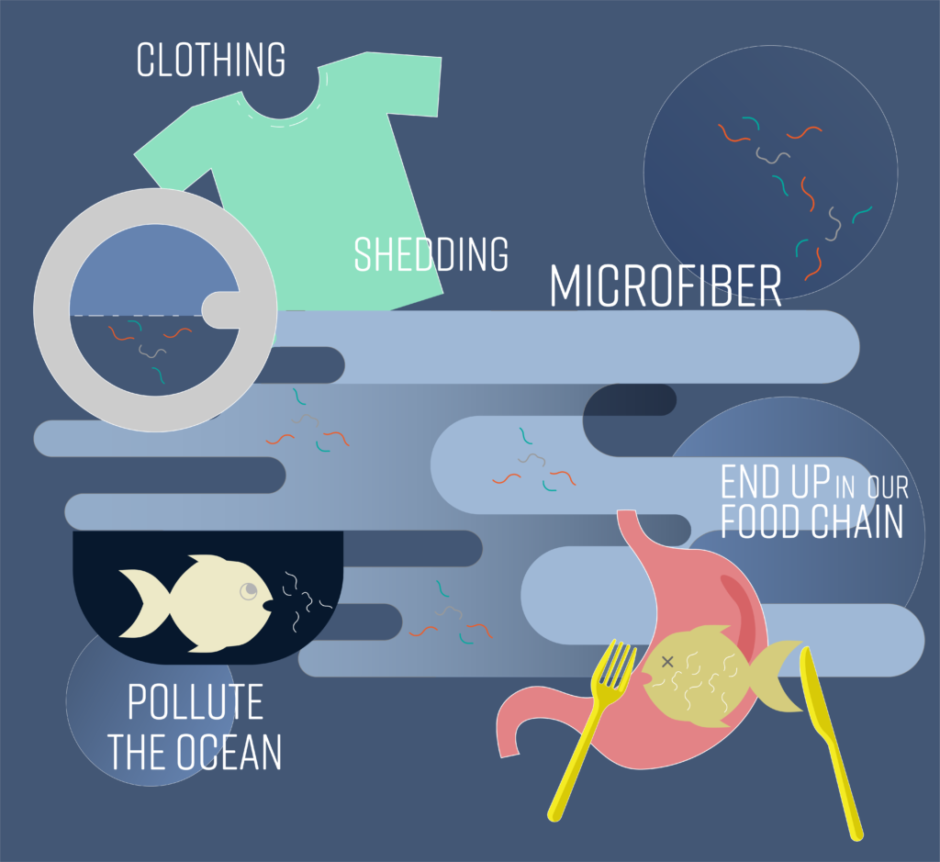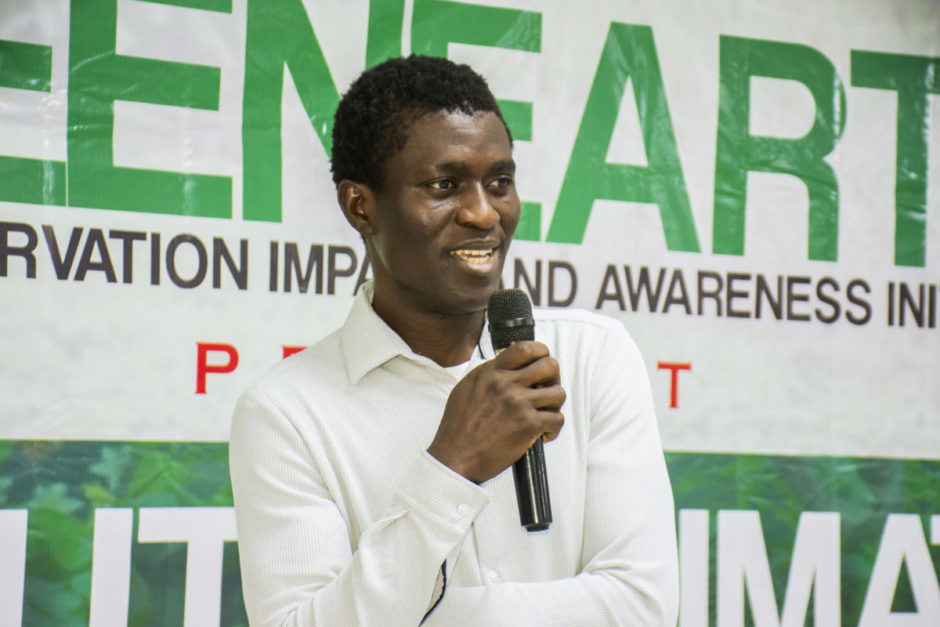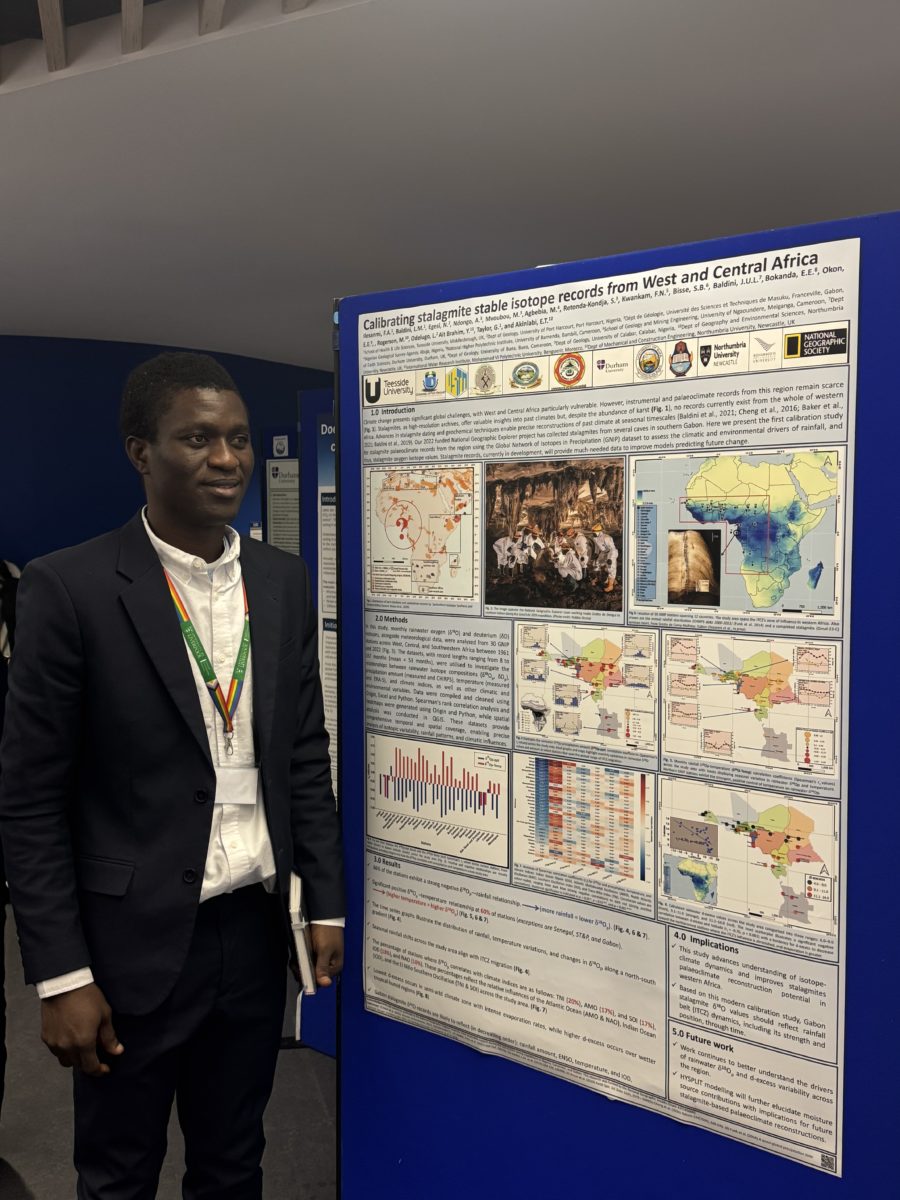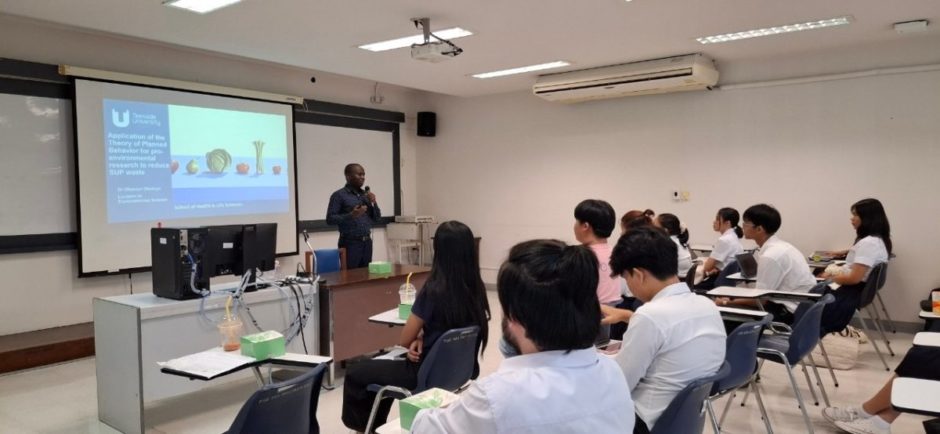Author: Oluseye
Fatai Ilesanmi in GB Cave, examining cave formations at the BCRA Conference 2025
Behind the Scenes at Westminster: Reflections from the Royal Society Pairing Scheme
In March 2025, I had the privilege of being selected as one of only 30 researchers across the UK to take part in the Royal Society Pairing Scheme, which connects scientists with parliamentarians and civil servants. I was paired with Fayyaz Muneer, Deputy Director at HM Treasury, and spent an immersive week in Westminster during the Spring Statement.
The experience highlighted just how important it is for researchers to engage with policymakers in ways that are clear, timely, and solutions-focused. Policy makers are often keen to hear from researchers — but they need evidence that is accessible, framed around live debates, and offered in a way that supports decision-making.
From discussions with Baroness Freeman of Steventon and Baroness Brown of Cambridge, to shadowing Treasury teams, the week offered powerful insights into how science can inform government at the highest level.
You can read my full blog, published on the Royal Society’s website, here:
👉 Royal Society – Going Behind the Scenes at Westminster
New Publication: Tackling Microfibre Pollution Through Consumer Behaviour—Insights from MSc Research
We are proud to share that our MSc Environmental Management student, Babatunde Oluwadamilola, has published a peer-reviewed article titled “Beyond fast fashion: consumer behavior, microfibre pollution, and sustainable fashion choices in the UK” in the Journal of Environmental Studies and Sciences (Springer Nature).
This timely and policy-relevant study explores the often-overlooked issue of microfibre pollution from the fashion industry, shedding light on how UK consumers perceive and respond to the environmental impacts of clothing choices.
Drawing on the Theory of Planned Behaviour (TPB), extended with variables such as mitigation strategies, age, and income, the research analysed survey data from 350 UK participants using multinomial logistic regression and path analysis. The study found that:
-
Perceived behavioural control was the strongest predictor of intention to adopt sustainable fashion practices (β = 0.67),
-
Followed by subjective norms (β = 0.54) and attitudes (β = 0.28),
-
Mitigation strategies—including eco-labelling and public awareness campaigns—boosted these predictors significantly, both directly and indirectly,
-
Age and income further shaped the effectiveness of these drivers, with older and higher-income consumers showing stronger pro-sustainability intentions.
This research contributes important insights into the behavioural dimensions of environmental sustainability and provides evidence-based guidance for reducing fashion-related microfibre pollution.
We congratulate Oluwadamilola on this achievement, which exemplifies the impact and real-world relevance of student research in our department.
🔗 Read the full article here: https://link.springer.com/article/10.1007/s13412-025-01028-1
Empowering Climate Advocacy Through Science: Reflections from the Youth Climate Action Workshop in Nigeria
Our PhD student, Fatai Ilesanmi, recently contributed to a high-impact climate event in Nigeria, where he shared insights on innovative palaeoclimate research and youth-led environmental solutions.
Workshop Report
The Youth Climate Action, themed “Empowering the Next Generation for Climate Action,” was held on May 17, 2025, at the Oasis Event Center and Conference Hall in Osogbo, Osun State, Nigeria. It convened over 150 participants, including students, policymakers, youth leaders, researchers, NGOs, and other stakeholders. Organised by GreenEarth Conservation Impact and Awareness Initiative (GECIAI), the event aimed to raise awareness and foster youth engagement in addressing climate change through knowledge exchange and practical collaboration.
During the workshop, I delivered a presentation titled “Lack of Climate Observation Data for Climate Studies in Africa: Implication of Stalagmites as Climate Tools.” My talk addressed the persistent scarcity of long-term, high-resolution climate observation data in West and Central Africa—regions particularly vulnerable to climate variability. I highlighted the value of stalagmites as robust palaeoclimate proxies, capable of filling critical data gaps through geochemical and isotopic analysis. Stalagmites, archived in caves across Africa, can provide continuous records of past rainfall, temperature, and monsoon dynamics spanning thousands of years. These records are crucial for validating global climate models and informing regional adaptation strategies.
I also discussed methodological challenges, including accessibility to cave sites and analytical constraints, while advocating for interdisciplinary collaboration to advance stalagmite-based research.
The workshop underscored the importance of youth empowerment in climate advocacy. Through interactive sessions, participants co-developed strategies for engaging communities in environmental stewardship. I left the workshop inspired, better connected, and equipped with actionable tools to contribute to Africa’s climate resilience.
I am deeply grateful to GECIAI for organising this impactful and timely initiative.
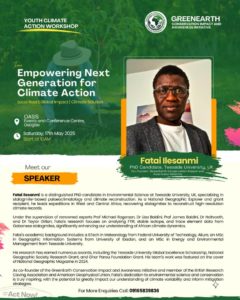
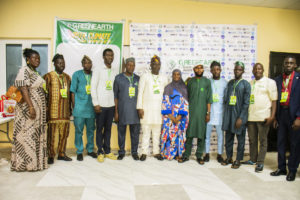
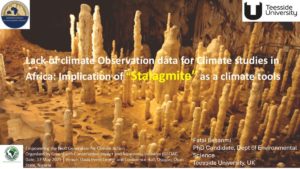
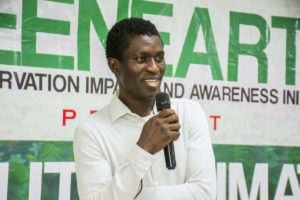
Showcasing Palaeoclimate Research at the QRA Annual Conference 2025
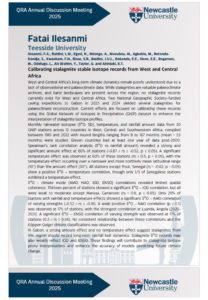
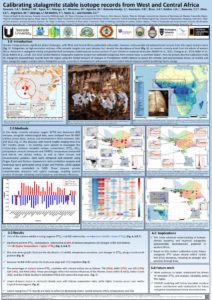
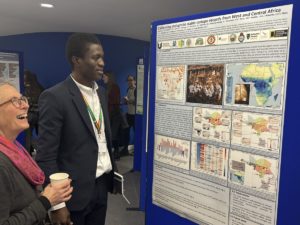
A Special Lecture at Chulalongkorn University, Thailand
Dr Oluseye Oludoye recently had the privilege of delivering a special lecture at Chulalongkorn University, Thailand. Invited by the Department of Environmental Science, Oluseye’s lecture focused on “Application of the Theory of Planned Behavior (TPB) in Pro-environmental Research to Reduce Single-Use Plastic (SUP) Waste.”
In his talk, Oluseye explored how TPB can be used to analyze and promote pro-environmental behaviours, particularly to reduce the prevalence of single-use plastics, which substantially threaten ecosystems worldwide.
Drawing from his recent research, Oluseye shared key findings on the effectiveness of TPB in predicting and influencing behaviours that contribute to SUP waste reduction. His research highlights the potential for TPB to inform public policy, guiding the development of strategies that can effectively encourage more sustainable consumer practices. Oluseye emphasised the importance of interdisciplinary collaboration in addressing environmental challenges, advocating for policies informed by robust scientific research and tailored to the cultural and social contexts in which they are implemented.
This opportunity was made possible through the support of the Faculty of Science at Chulalongkorn University, facilitated by the Sci-Super Plus grant, which funded Oluseye’s trip. This opportunity not only underscored the global relevance of his work but also strengthened the academic and research ties between Teesside University and Chulalongkorn University, paving the way for future collaborations in environmental science.


